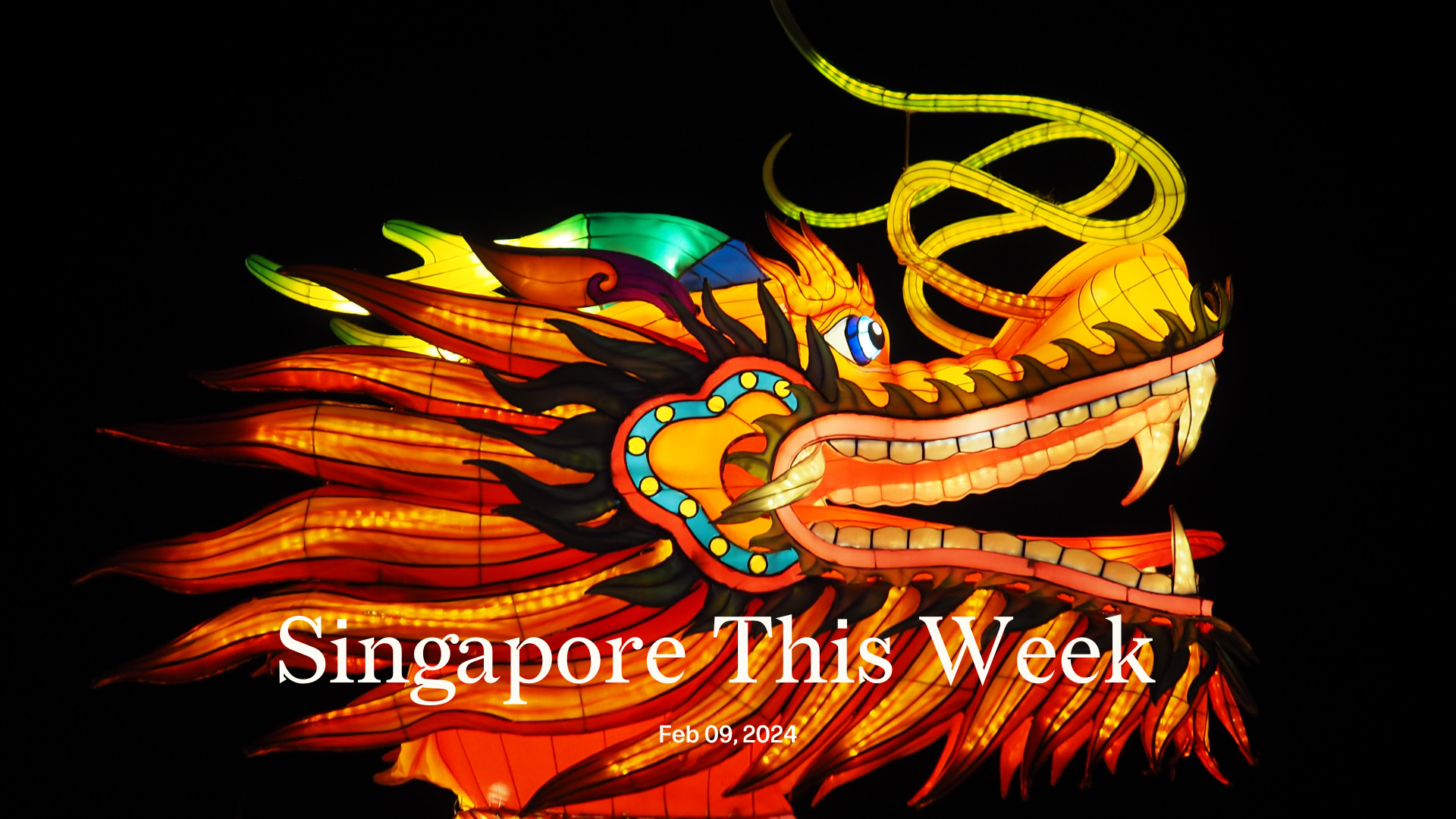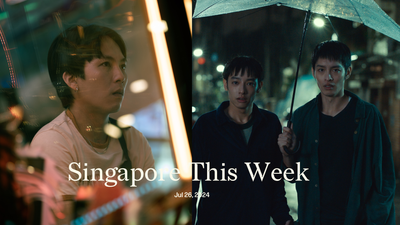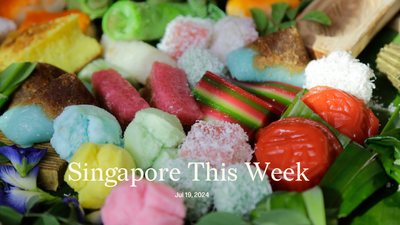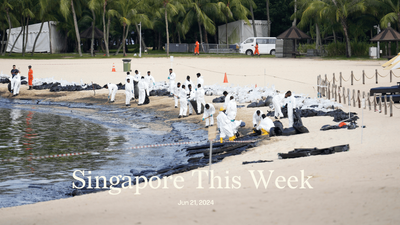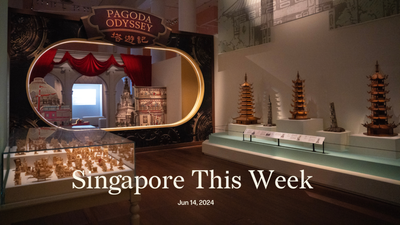Politics: Goh Chok Tong’s son in trouble, and the bizarre reporting around it
High Court judge Aedit Abdullah has found Goh Jin Hian liable for US$146m (S$196m) in losses as a director of Inter-Pacific Petroleum (IPP), a now-insolvent marine fuel supplying company. In “Brief remarks” ahead of a full judgement, Aedit was scathing of Goh’s failure to discharge his duties. “The explanation proffered by the plaintiff, i.e. that the defendant [Goh] was ignorant, ties in with the behaviour and actions of the defendant, the language of the emails,” he wrote in a paragraph about Goh’s lack of awareness about basic matters at the firm. “But a directorship is not a sinecure, nor an honorary function. The obligation is to monitor the affairs of the corporation,” he wrote, a fact that sounds like Governance 101, but one which may surprise Singaporean corporate luminaries. Critics have long complained about lax corporate governance here. A Singaporean director of 980 companies—yes, you read that right—was recently jailed after over S$7m was laundered through some of them. “An honest and reasonably diligent director would have persisted and probed further,” Aedit also said, in arguably the most brutal put-down of a member of the Singapore elite. Goh is the son of Goh Chok Tong, Singapore’s second prime minister, who left the ruling People’s Action Party (PAP) in 2020. The informational flows around Aedit’s remarks, and the subsequent reporting on it, were bizarre. Aedit’s remarks were made on January 24th. Jom first received it on January 26th, presumably around the time that some others did. Gutzy.asia, a “Taiwan-based media company”, wrote about it on February 5th. And over the subsequent days, Singapore’s mainstream media (MSM) outlets finally reported it, some two weeks after Aedit’s remarks were first made. Why the delay? We don’t know, though perhaps they were waiting for the full judgement, only to have their hand forced by Gutzy. The MSM reportage in turn appears to have prompted foreign outlets, including Bloomberg, SCMP and Yahoo! Finance, to publish stories. Interestingly, while the foreign outlets all headlined Goh’s relationship to his father, the MSM ones tucked the relevant fact into their narratives, with The Straits Times burying it in paragraph eight. Separately, Goh is also facing 39 charges in a criminal case concerning false trading, from his time as CEO of the New Silkroutes Group, an investment trading firm. His pre-trial conference is scheduled for early March, coincidentally the same time as the corruption case involving S Iswaran, former transport minister with the PAP. Hopefully we don’t have to wait till April to hear about them.
Society: No such thing as a free lunch
Complimentary tickets to a show or sporting event; free meals and luxury goods; and all-expenses-paid holidays. Innocuous gifts? Or one step closer to corruptibility? These questions have pervaded the public’s consciousness since Iswaran resigned as transport minister after being handed 27 charges, including for corruption and obstruction of justice. He’s also been accused of accepting items worth more than S$380,000 from tycoon Ong Beng Seng, with some allegedly in exchange for advancing Ong’s business interests. “Our first instinct must be to decline any unsolicited gifts and return them if possible,” said Chan Chun Sing, minister-in-charge of the public service, in Parliament. But if this wasn’t an option, then the officer must declare it, added Chan, who’s also education minister. The recipient could, of course, choose to keep the gift, but would have to pay the object’s market value to the government, unless it costs less than S$50, and won’t affect the integrity of the civil service (and who might be the integrity police?). This issue isn’t only a matter of concern for civil servants and politicians. Other professions that depend on public trust, like in journalism and the nonprofit sector, have explicit rules regarding gifts and hospitality. Why receiving freebies is potentially problematic might seem like common sense—the practice raises concerns about potential conflicts of interest; resulting in bias, deceit, unfairness, and worse still, bribery and corruption. But, for many politicians, temptation appears to override sense. In Pakistan, Imran Khan, the former prime minister, is serving a three-year sentence for corruption, including for allegedly selling gifts that he received while in office. And in the UK, there’s been a growing trend of politicians accepting giveaways. “Hospitality enables private interests with the deepest pockets to access and potentially influence MPs [members of Parliament] and ministers,” said Alex Beatty of Spotlight on Corruption. “This can undermine the quality and integrity of decision-making away from the public interest and towards whichever company forked out for the strawberries and cream.” Mind you, Singapore’s very serious about maintaining its squeaky clean image; paying its government officials huge salaries to discourage corruption and attract talent who might otherwise be drawn to the private sector. But no plan is foolproof. Lines are often blurred, especially when gifts and hospitality are considered “part and parcel of doing business”, and rejecting them can be considered rude. Perhaps Iswaran was simply too polite for his own good.
Society: Young awkward turtles in their shell
Have you ever clammed up while talking to someone? Felt your heart race and palms get sweaty? Is Olivia Rodrigo’s “ballad of a homeschooled girl” your anthem? You’re not alone. 56 percent of young people aged 21-34 feel anxious sometimes when having conversations in-person, according to a survey conducted by the Institute of Policy Studies (IPS) last year. In stark contrast, only 32 percent of those aged 50-64 reported experiencing the same nervousness. “The immediacy and unpredictability of in-person conversations can be overwhelming,” a 19-year-old law student at Temasek Polytechnic told TODAY. Today’s youth are digital natives who are generally more comfortable interacting in cyberspace; 53 percent of that same group found it easier to talk to people online than offline. In person, they can’t delete or edit what they say, making it harder to mask any unease. Can you blame them? Experiencing a worldwide pandemic in their formative years means today’s younger generation had to attend classes and meetings over Zoom and pretend to be rah-rah during online orientation camps or internships, all while being deprived of team lunches at the kopitiam, house parties and water-cooler gossip. As a result, many of them “missed out on building [social] relations”, which could be a factor contributing to the higher levels of loneliness among youth respondents, according to Chew Han Ei, adjunct senior research fellow at IPS. But there’s no need to jump the gun and “[incite] moral panic”, reassured Shannon Ang, assistant professor of sociology at Nanyang Technological University. Loneliness and anxiety are part of a “normal” human experience. Only if it’s chronic—persisting for years at intense levels—should we start to worry. So, what can we do to support today’s youth and help them out of their shell? Young people told TODAY they would appreciate a “more empathetic and non-judgemental society”, one where openness and understanding is commonplace. When you speak to a young person during Chinese New Year this weekend, try meeting them where they’re at with compassion and respect; leave the snarky comments and overbearing questions at the door.
History weekly by Faris Joraimi
The year of the rabbit turns into that of the dragon this weekend, reminding me of a pretty image from Chinese mythology, that of Longmen or “Dragon’s Gate”. It’s a name given to legendary waterfalls cascading down high mountains, somewhere along the Yellow River, which is often called the cradle of Chinese civilisation. Under mist and foam, schools of carp swim upstream against the current, and while many brave the leap over the falls, few succeed. Those who do, transform into dragons. The legend was an enduring metaphor for those attempting the imperial examinations, given the sheer difficulty of the endeavour and its ability to catapult even a commoner into the coveted ranks of the elite scholar-gentry. I remember learning in secondary school history how that system supposedly inspired Singapore’s emphasis on “meritocracy” in education and governance. Which little dragons in the civil service designed that curriculum, I wonder. Historically, the culture of Singapore’s Chinese was rather removed from what the Confucian Chinese literati represented. Products of a tradition that lasted over a thousand years, they staffed the broad administration needed to govern a vast territorial empire despite multiple dynastic changes. The Chinese in the old Malay world—mostly merchants, mariners, and pirates from the southern maritime regions of Fujian and Guangdong—occupied stigmatised professions in the imperial hierarchy. Later, Chinese sojourners in colonial Malaya were also mostly non-elites enduring hard labour, even if various towkays and kapitans acquired the scholar-gentleman’s opulent trappings. The ‘Chinese-educated’ in the decades just before independence inherited the intellectual culture of the May Fourth Movement, and were thus hardly Confucian scholars. Among the small circle of Chinese cultural elites in 19th-century Singapore, however, one did pass the Qing imperial exams: Khoo Seok Wan, a colourful figure who backed the ill-fated Hundred Days’ Reform, and a prolific poet. Facing our own waterfalls in the year of the dragon, let us be carp: brave in the attempt.
Arts: Something Not Like This–Coldplay, access and allyship
“I’ve been reading books of old, the legends and the myths, the testaments they told, the moon and its eclipse,” Coldplay frontman Chris Martin croons in their hit single “Something Just Like This”. The glamour of the British rock band and their headline-hogging attempts at providing access services for d/Deaf and hard-of-hearing concertgoers certainly eclipsed many of the flaws of their approach. Local organiser Live Nation hired three hearing sign language interpreters for the band’s six-concert extravaganza in Singapore last month. The trio’s enthusiastic song interpretations quickly went viral: the public praised the band’s gestures at inclusivity, and the interpreting team members have become media darlings. But Coldplay’s feel-good factor hasn’t sat well with everyone. It’s no secret that Martin’s attempts at signing two songs in Singapore Sign Language (SgSL) were clumsy at best, and culturally offensive at worst. Observers wondered if he might have copied signs from videos made by Deaf interpreters, instead of working with them in person to make sure his gestures were accurate—akin to mimicking a foreign language phonetically, without a language instructor or accent coach. Others felt that the band should have committed to platforming local Deaf interpreters, noting Justina Miles’s meteoric rise to fame following her punchy and precise take on Rihanna’s Super Bowl halftime concert last year. Because accessibility structures and deaf advocacy are so overlooked in Singapore, d/Deaf individuals and access service providers have been reticent about going public with their critique. But not all of them. “Access is not entertainment,” a Deaf sign language instructor told Jom. Hina, who works full-time in the administrative sector, felt that if the band and organisers were truly invested in access, they would have invested in pairs of Deaf and hearing interpreters. Sign language politics is complex in Singapore. Many Deaf Singaporeans identify as a linguistic minority (rather than, for instance, people with a disability). Access work in Singapore’s arts sector also far precedes Coldplay’s take on inclusivity. Over the past few years, organisations and festivals have been normalising access by offering services such as touch tours of their sets, curator tours with simultaneous SgSL interpretation, audio description, relaxed performances, speech-to-text interpretation, as well as creative captioning. Nonprofits and social enterprises focusing on access, such as Equal Dreams and Access Path Productions, are frequently consulted on best practices in arts accessibility. Coldplay’s concert may not have been “para-para-paradise”, but Singapore still has the potential to set rigorous accessibility standards that exceed those given a pass by the sheen of celebrity.
Some further reading: “Revisiting the Past to Understand the Present: The Linguistic Ecology of the Singapore Deaf Community and the Historical Evolution of Singapore Sign Language (SgSL)”, by local Deaf scholar Phoebe Tay, captures in meticulous detail the linguistic conventions and contentions of the community.
Tech: Better to stick with a living, breathing secretary?
Automation and artificial intelligence (AI) have changed the way corporate secretarial tasks are performed, resulting in businesses switching from traditional to digital company secretaries. But despite the increasing popularity of such services, digital corporate secretary start-up Osome has not escaped the tech industry’s recent spate of job cuts—it was reported to have laid off and lost a significant number of staff. Osome provides an AI-powered platform for accounting, filing and other business needs. However, it has experienced a perfect storm of problems—staff attrition, struggles with transitioning to new in-house software, and intense workload pressures. This has led to missed deadlines for key customer filings, resulting in penalties. Customers have reported communication breakdowns and last-minute requests, by what was once an apparently flawless service. Over 90 negative reviews reflected a growing dissatisfaction with Osome. The employee exits stemmed from non-competitive salaries and the company’s reluctance to change and adapt. Fresh hires struggled with the new system’s bugs. Workload intensified stress and burnout. To break even, Osome had cut costs by laying off staff, which impacted support teams. This risked further eroding its service quality at a time when clients were demanding resolution. According to data from Alternatives.pe, Osome’s net loss widened nearly 2.5 times to US$9.8m (S$13.2m) in FY2022, even as revenue doubled. Losses and fundraising challenges led to the 70 employee layoffs from non-revenue teams in late 2023. For Osome to regain the trust of its customers, it will need to exhibit greater transparency on issues, a focused hiring plan, and improved workflows to consistently meet deadlines. The broader challenge is around the delicate balance between managing operational costs and preserving service quality. For the corporate secretary industry, where personalisation and responsiveness are vital, companies must innovate continually, not just in their core offerings but also in customer relations and support frameworks. Incorporating technology to streamline processes and improve efficiency could be part of the solution, but must not sacrifice the human touch that clients value.
Tech: Non-compete clauses should not be unreasonable
Should your former employees be allowed to join your competitors? This age-old corporate question was at the heart of a recent lawsuit by Shopee against an ex-senior executive who joined competitor ByteDance. The Singapore courts have just dismissed it, signalling their stance on balancing employee mobility and commercial interests. Shopee had sued Lim Teck Yong, its former regional operations head, for breach of a non-compete clause after he joined ByteDance weeks after leaving the e-commerce giant’s Brazil operations last May. However, Justice Kwek Mean Luck found that Shopee had not raised any “serious question” to be tried. Significantly, the judge also doubted the “reasonableness of the geographical restraint” that would ban Lim from all Shopee markets. This affirms limits on non-compete terms to ensure that they don’t unduly curb future employment. Kwek also found that Shopee did not prove Lim would poach clients/staff or misuse information. This sets a high bar for demonstrating that restricted conduct has occurred or will do so. The ruling reinforces Singapore’s stance that non-compete clauses must be narrowly tailored and not overly-restrictive. It upholds employee mobility rights while still protecting legitimate proprietary interests. This balanced approach to knowledge-sharing versus future opportunity is important for Singapore’s status as a talent hub and will guide similar disputes. According to the National Trades Union Congress, they received requests from 20 union members for advice and assistance from the Tripartite Alliance for Dispute Management on the non-compete clauses in their employment contracts in 2022. While the number of concerns over non-compete clauses are few in Singapore, it is likely to become more common especially in the technology sector where top executives frequently move between competitors in the same industry. As such, the decision by the High Court is important in affirming Singapore’s stance on having a reasonable approach to restrictive contractual terms.
If you enjoy Jom’s work, do get a paid subscription today to support independent journalism in Singapore.

